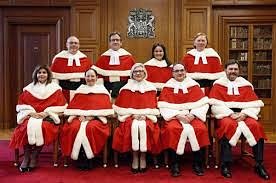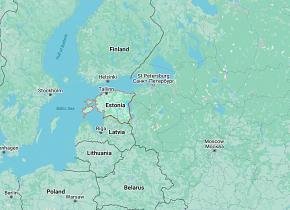Ontario People's Front leader says Ottawa-Centre doesn't need all those cannabis stores
The sale of cannabis for recreational use became legal in all provinces and territories in Canada for adults 18 years and older in 2018, through the Cannabis Act. However, since its legalization, there has been a massive explosion of cannabis stores across major cities in the country, raising concerns over impending market saturation.
Leader of the Ontario People's Front Raymond Samuels, who is running as a candidate in Ottawa-Centre, said that the uncontrolled increase in the number of cannabis stores needs to be curbed as it undermines the quality of urban social spaces.
“We’re against what’s going on in Ottawa in particular with the proliferation of these (cannabis) storefronts which don’t add to the quality of life and it is completely unnecessary for the government to be using a sort of legalized context to be breeding cartels and oligopolies of cannabis storefronts,†said Samuels in a video statement.
The Ottawa-Centre should contain a mixture of stores that are available and accessible to all kinds of people irrespective of what their needs are rather than what is obtainable at the moment, said Samuels. This year started with several pending applications for new cannabis stores across Ottawa and in fact, the Ontario province hit a new milestone in the industry late last year by surpassing 1,000 open, authorized cannabis retailers.
"In just over two short years, we’ve reached 1,000 Authorized Cannabis Store locations across the province," the Ontario Cannabis Store (OCS) said in a statement. “Not only is this a huge step for the legal market, but it has created a diverse roster of retail partners that we’re so proud to work with every day.â€â€‹
While the government continues to issue cannabis licenses to new retailers in Ontario, Samuels warns that this would further create increased competition, distribution of adulterated products and an unhealthy crowded marketplace, resulting in an economic pitfall. The decriminalization of cannabis is surely a good move in ensuring that anybody who wants to consume or sell the product can do so legally, however, the evident monopolization and empowerment of corporate cannabis retailers—many of which are American-owned—provides little or no benefit to local community economic development, he added.
“The Ottawa-Centre should be housing stores which are widely accessible to everyone in the community and not simply these cannabis storefronts limited to just cannabis users which in my view is not a good use of the space of the community and isn’t contributing to the standard of a quality product,†said Samuels.
Michelle Groulx, executive director of the Ottawa Coalition of Business Improvement Areas has equally voiced his concerns over the rapid congestion of cannabis stores in certain business areas in Ottawa. Like Samuels, the coalition supports cannabis retail in these business areas but has expressed deep concerns about the government creating a pending problem by failing to place restrictions on the outlook of some of these storefronts and the variety of permitted products.
It would be in the best interest of the city should the government choose to give municipalities more power over deciding cannabis retail store locations and limiting the number of storefronts in a certain neighbourhood, said Groulx. The Ontario People's Front leader is clamouring for better cannabis decriminalization policies that adequately regulate the opening of stores in the Ottawa centre and supports local community economic development, not serving political—or American—investment interests.
Comments
There are 0 comments on this post













